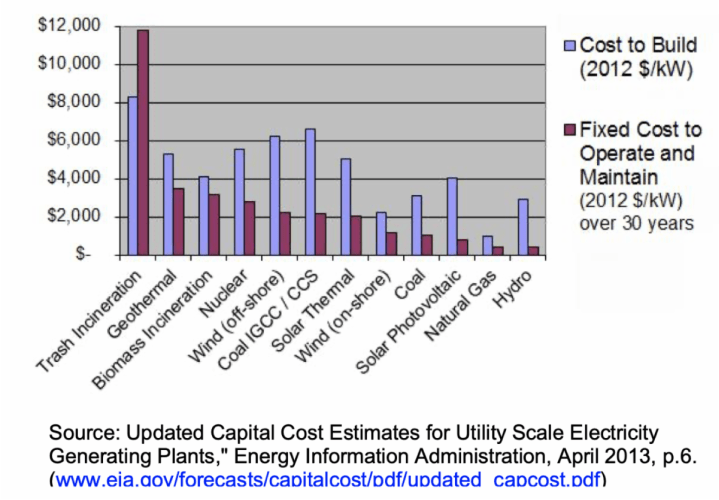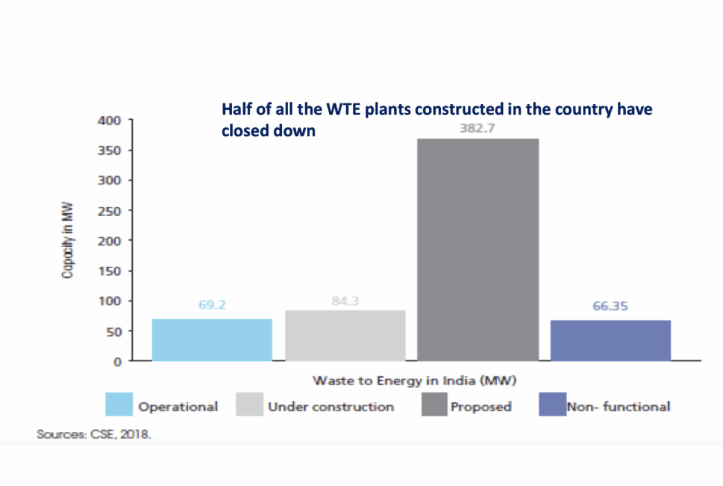WASTE MANAGEMENT
Each type of waste has different methods of disposal and management.
Know More About Waste Management Methods
MIXED WASTES
Problems
![]()
- Dumping
![]()
- Burning
![]()
- Drains
Waste to Energy
Converting Waste to Energy seems like an easy solution to all of our waste management woes.
- It does not require segregation of waste
- It ‘burns’ waste to produce power or fuel
- It is working in Sweden/Switzerland/Singapore etc
- It boasts of ‘latest’ technologies and ‘safe’ operating protocols
- People think it can be an ‘addendum’ to recycling: So segregated waste goes for recycling and ONLY whatever is mixed goes for Waste to Energy (WTE)
Here are a list of reasons it is a bad idea.
“Waste-to-energy” incinerators consume more energy than they produce
Due to the low calorific value of waste, incinerators are only able to make small amounts of energy while destroying large amounts of reusable materials


Bulky waste
In Europe/Singapore, the composition of waste is such that only 12% is organic waste, rest is packaging or dry waste.
In India, 60% is organic waste. WTE systems demand more dry waste to be operational. Hence a lot of good, clean dry waste will need to be redirected to WTE plants in order to keep them functioning
Bulky waste
In Europe/Singapore, the composition of waste is such that only 12% is organic waste, rest is packaging or dry waste.
In India, 60% is organic waste. WTE systems demand more dry waste to be operational. Hence a lot of good, clean dry waste will need to be redirected to WTE plants in order to keep them functioning

Detrimental to Recycling
In the long term, if we have a solution for mixed waste, there will be no incentive for segregation or recycling.
India has a flourishing informal sector that works towards our recycling and WTE threatens to endanger this economy.
Recycling Rate:
India: 60%
Sweden: 47%
USA: 32.1%
Denmark: 29%
Singapore: 17%


High Cost
The setup cost and the operating cost is insanely expensive. The power requirements are higher. 240 crores is being spent for a WTE plant for Bangalore’s waste. For a fraction of this cost, investments in recycling, composting and remanufacturing would create significantly more business and employment opportunities.
High Cost
The setup cost and the operating cost is insanely expensive. The power requirements are higher. 240 crores is being spent for a WTE plant for Bangalore’s waste. For a fraction of this cost, investments in recycling, composting and remanufacturing would create significantly more business and employment opportunities.

Health & Environment Risk
All incinerators pose considerable risk to the health and environment of neighboring communities as well as that of the general population. Even the most technologically advanced incinerators release thousands of pollutants that contaminate our air, soil and water. Many of these pollutants enter the food supply and concentrate up through the food chain. Incinerator workers and people living near incinerators are particularly at high risk of exposure to dioxin and other contaminants.


Not successful in India
Many state governments have tried and invested crores of rupees in setting up plants and not many are operational today. The most famous one to be shutdown is Okhla WTE plant near Delhi.
Not successful in India
Many state governments have tried and invested crores of rupees in setting up plants and not many are operational today. The most famous one to be shutdown is Okhla WTE plant near Delhi.

Know more